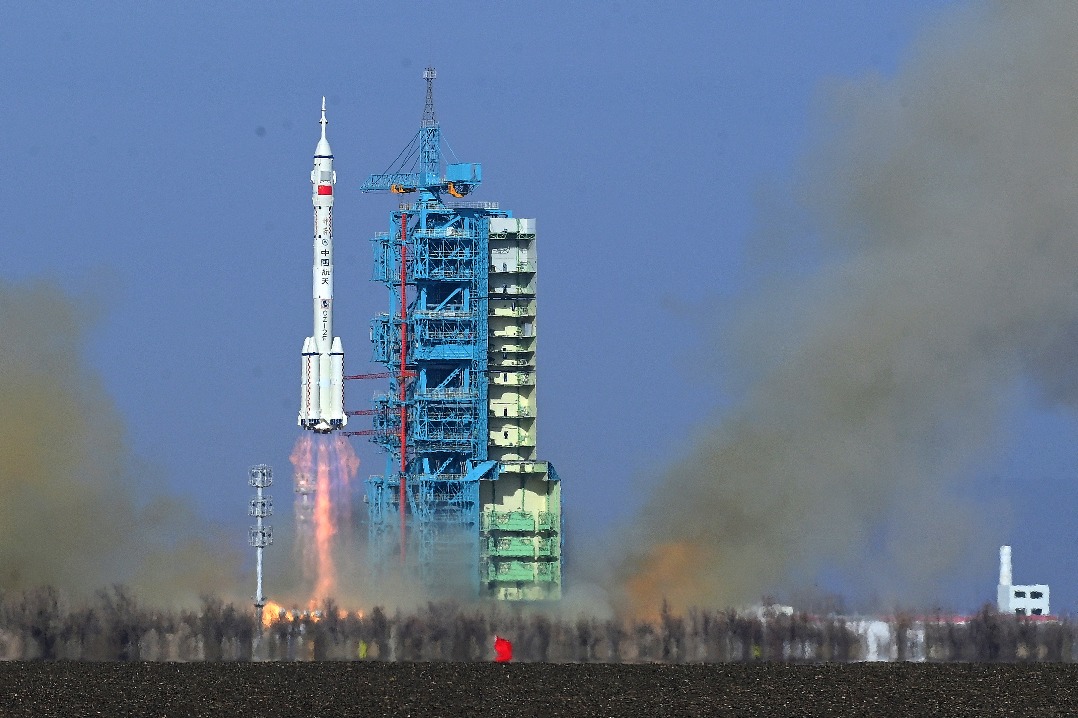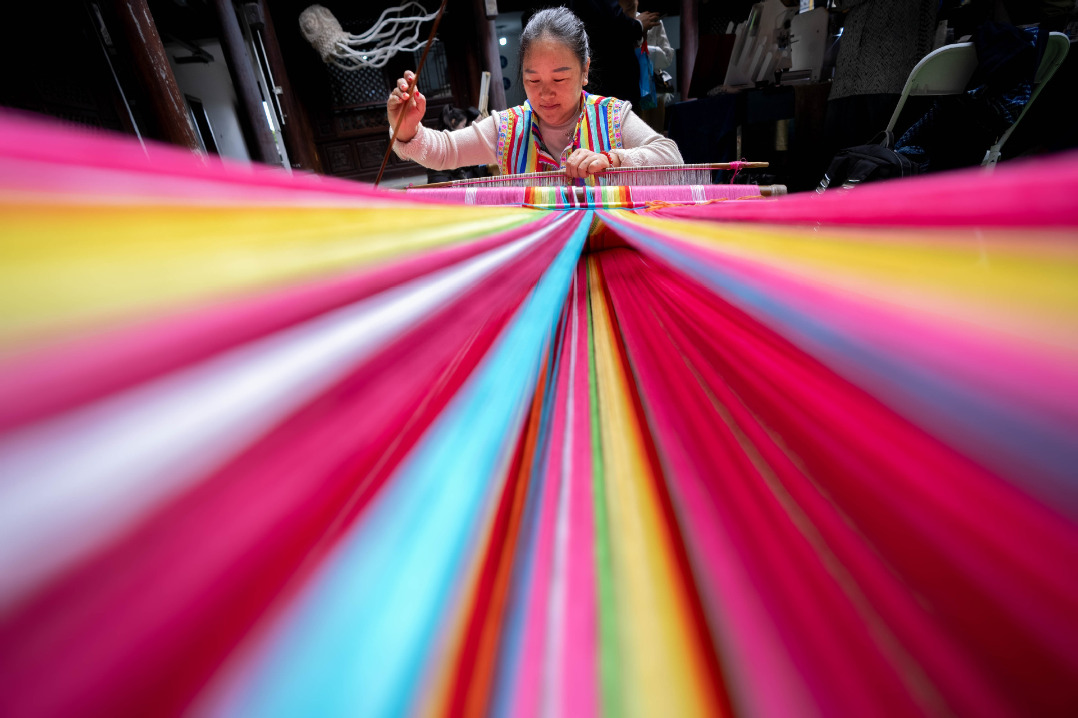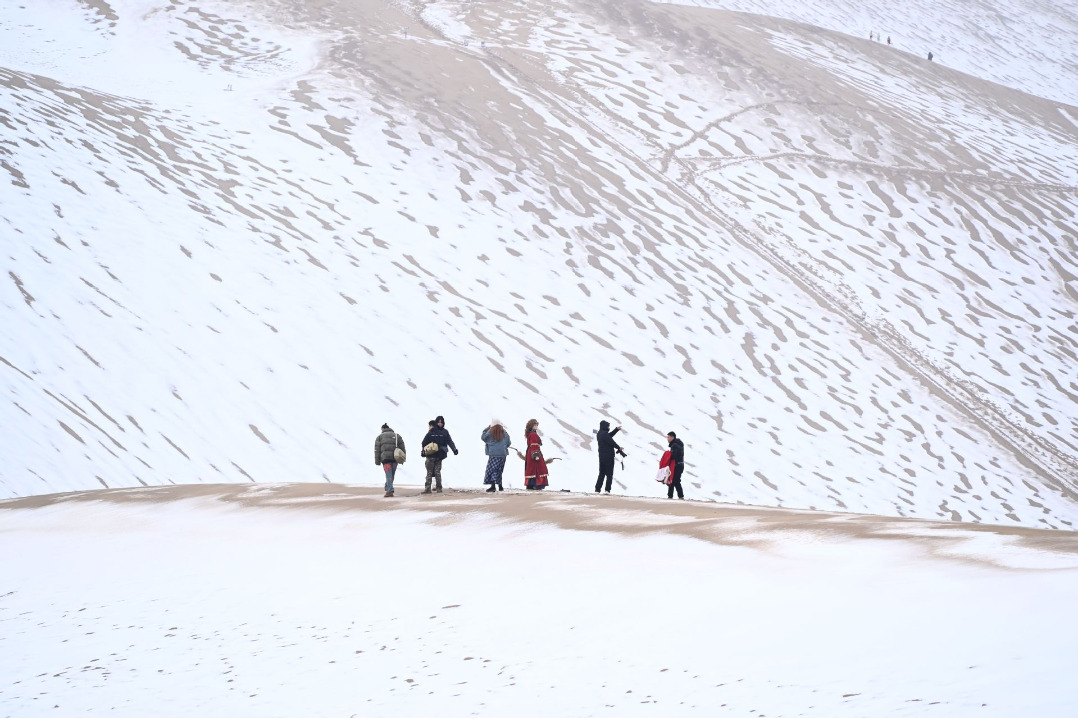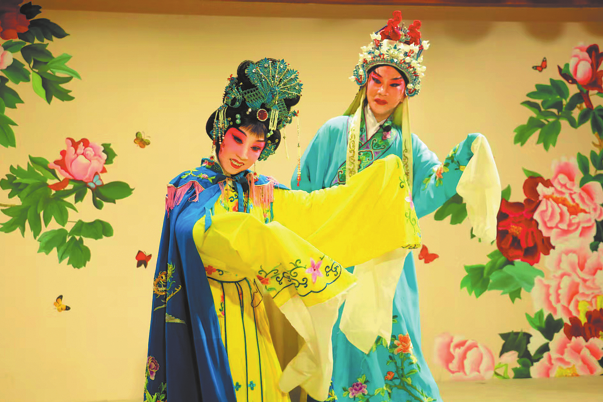Martial arts as a unifying force, transcending cultural boundaries

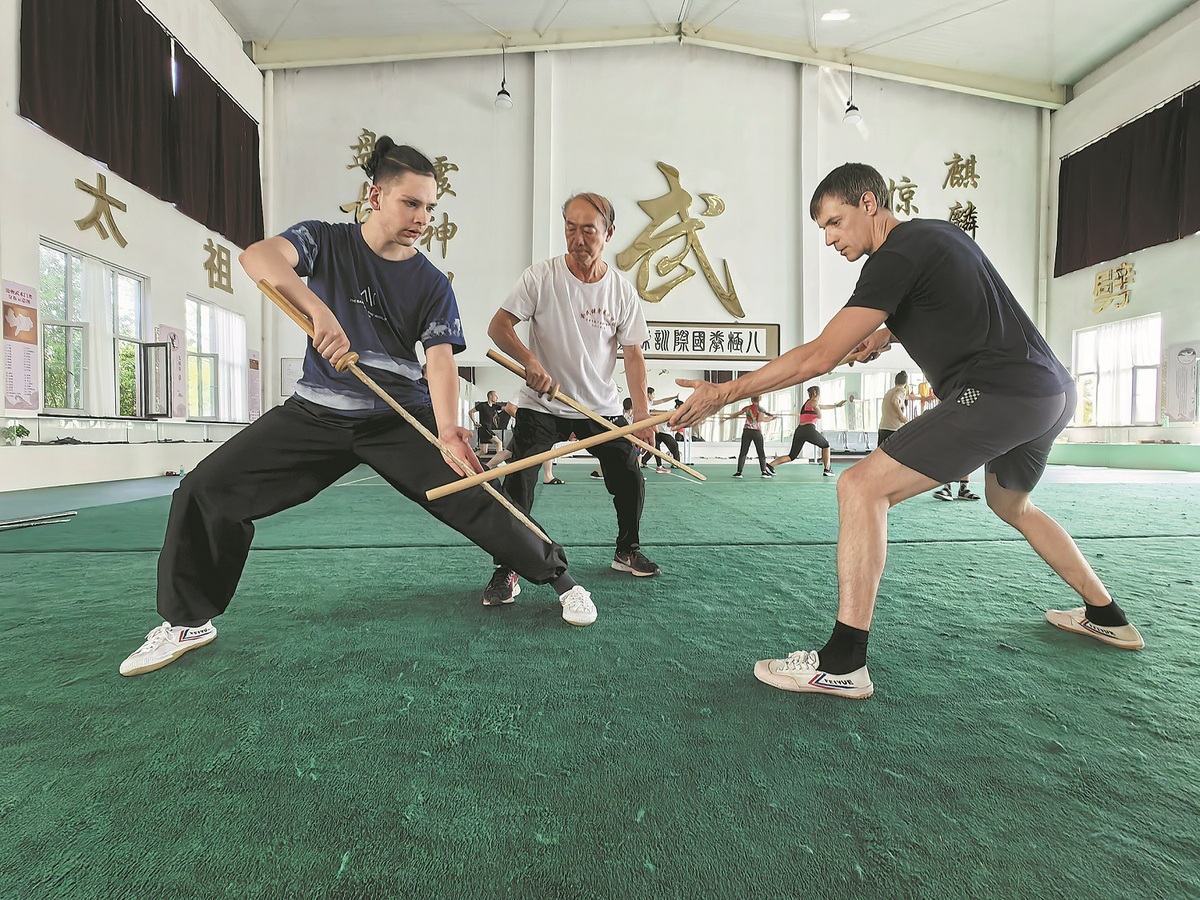
For 65-year-old bajiquan master Liu Lianjun, the ancient Chinese martial art has helped him forge close ties with his Russian apprentices.
Anton Andreev, 36, is Liu's closest Russian apprentice. Liu is the principal of Qingxian Pangu Martial Arts School in Cangzhou, in North China's Hebei province.
The two have interacted frequently, with Andreev sometimes studying martial arts in Qingxian county, where the school is located, and sometimes inviting Liu to Russia for guidance.
"Bajiquan brings us closer," Liu said. "Russian martial artists see it as more than a sport — it's culture, health, and a shared passion they want to deepen."
With over 300 years of history, bajiquan, or Eight Extremes Fist, is known for its explosive power and close-range combat techniques. It has thrived in Cangzhou, hailed as China's "Hometown of Wushu". Wushu is the Chinese term for martial arts.
As vice-chairman of Cangzhou's martial arts association, Liu has embodied this kung fu's legacy.
Trained under great masters since age five, Liu now devotes considerable effort to sharing bajiquan's philosophy, which he summarizes as "civilize the mind, fortify the body."
"Bajiquan isn't just about fighting," Liu said. "It teaches patience, integrity, and resilience — values that transcend borders."
"Anton told me that he is obsessed with bajiquan because it's not just a flashy display but highly practical, with profound power, and is truly deserving of the title 'kung fu'," Liu recalled.
Attracted by Liu's performance of bajiquan moves at a competition in 2016, "striking like a bursting bow, erupting like thunder", Andreev vowed to become his apprentice and came to Qingxian county to study.
Overcoming language barriers through gestures and determination, Andreev immersed himself in training and was very persistent.
"He wants to learn bajiquan systematically and thoroughly, rather than learning it in fragments," Liu said.
"He'd drill a single move for hours, always asking 'Why?' until he mastered it," Liu recalled of the time teaching Andreev. "That curiosity and persistence made him different."
Andreev's perseverance paid off. His bajiquan skills improved rapidly, and he has become an excellent practitioner.
Now a bajiquan instructor in Moscow, he runs two schools with over 100 students and has become a key figure in Russia-China martial arts exchanges.
"He is very grateful for my guidance, and he often communicates with me over WeChat to express his gratitude," Liu said.
"Thank you very much for teaching us. Your kung fu is the best!" one of the messages from Andreev said.
This March, Andreev helped organize Liu's nine-day tour of Moscow and St. Petersburg, during which the master taught bajiquan's intricate techniques and celebrated victories with Russian students.
The bond extends beyond Andreev.
In recent years, Russian teenagers who prefer Chinese martial arts have sought out Liu to learn bajiquan.
Vladimir Surokov is another Russian youth obsessed with Chinese martial arts. He studied martial arts in Beijing and Henan province.
Surokov met Liu during a martial arts competition about 10 years ago and also became Liu's apprentice. Today, he has become a renowned martial artist in Russia, even serving as a judge at international competitions.
"Martial arts have brought us closer," Liu said. Over the past decade, his school has trained over 700 Russian martial artists.
Every summer, Andreev brings about 20 to 30 Russian teenagers to Qingxian county to learn bajiquan, Liu said, adding that Andreev is planning a trip in July.
According to Liu, the biennial China Cangzhou International Wushu Competition is a favorite event for Russian martial arts enthusiasts to participate in.
"Some of them have gained a good reputation at the competition and won medals," Liu said.
"We should maintain an open attitude for the inheritance of bajiquan, which originates from China but belongs to the world," Liu said.
Through martial arts competitions and folk exchanges, the communication between Cangzhou martial arts and the world has become increasingly frequent, spreading martial arts culture to various parts of the world.
zhangyu1@chinadaily.com.cn
- Global gathering of Cantonese people opens in Guangdong
- China's draft airline rules represent progress for wheelchair users
- China steps up efforts to tackle wage-withholding employers
- Taicang factory builds inclusivity
- Scientists discover important Early Jurassic dinosaur tracks
- China's Shenzhou XXII spaceship docks with space station combination

















